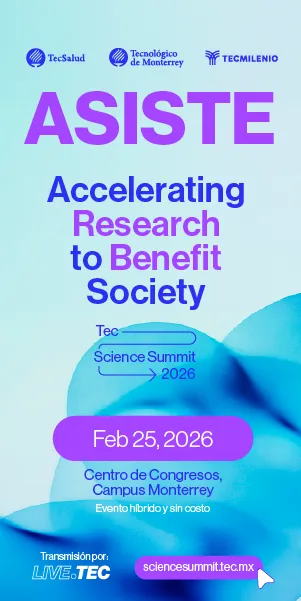Entertainment and leisure activities —such as concerts and outings with friends— followed by emergencies and education, are central to the saving and spending habits of Generation Z college students, according to a report released by researchers from the School of Business at Tec de Monterrey.
The study, titled Generation Z and Their Financial Culture, delves into how college-aged centennials manage their personal finances and the value of accessible financial education, as noted by Kathia Ramos, director of the Bachelor’s in Finance program at Tec.
The report reveals that the percentage of young people saving for entertainment and leisure ranges from 30% to 38%, varying by gender. When it comes to emergency savings, the most significant portion is among individuals identifying as non-binary, with 46.2%, in stark contrast to the lower percentage (18%) of both men and women.
“What’s particularly striking is their confidence in formal saving, meaning through traditional or digital banks. This is an intriguing characteristic, as previous generations often displayed a certain mistrust or unfamiliarity with the banking system due to the crises of the ’90s and earlier decades,” Ramos points out.
The study further explores the financial culture and education of centennials, examining their income sources, savings, expenditures, and credit usage, along with their integration into the financial system.
Financial Culture and Education Among Generation Z
This report, conducted by researchers at the Center for Financial Access, Inclusion, and Research (FAIR Center) at the School of Business, surveyed 653 undergraduate and graduate students from Tec who were born between 1995 and 2004. The sample included 323 women, 317 men, and 13 individuals identifying as non-binary.
In addition to their confidence in the banking system, the researchers highlight that, as digital natives, these students access financial services through platforms like online banking. Notably, four out of ten respondents reported using apps to manage their finances.
The study also examines key spending categories, with food accounting for about 50% of expenses, followed by entertainment, education, healthcare, personal care, and transportation. The most commonly used form of credit is the bank card, utilized by 47.3% of men, 23.5% of women, and 23.1% of non-binary individuals.
Regarding financial education, the study indicates that centennials are already familiar with concepts such as retirement accounts (afore), credit bureaus, cryptocurrencies, inflation, and risk diversification. Their primary sources of information for achieving future economic well-being include university courses, external sources like family, and social media.
“The difference in this generation lies in their financial culture, which they build based on the education they receive about various products and services and how the financial system works,” adds Ramos.
The study is descriptive in nature and aims to provide a clearer picture of Generation Z’s habits concerning money management, saving, and investing, according to Osmar Zavaleta, associate dean of research at the School of Business and EGADE Business School at Tec.
“This insight could be invaluable for financial institutions, allowing them to tailor their products and services to better suit the characteristics and preferences of this generation. For instance, we refer to this generation as digital natives or consumers of specific products and services.”
Series of Reports on Generation Z
Zavaleta tells TecScience that this report is part of the Gen Z Series, which consists of four volumes that explore the behaviors, values, and concerns of centennials in the following areas:
- Work Expectations
- Shopping Habits
- Sustainable and Wellness Behaviors
- Financial Education and Culture
These dimensions were selected based on research groups led by experts in these thematic areas, including Sergio Madero, Lucila Osorio, María de la Paz Toldos, and Francisco Orozco.
The series aims to provide valuable insights for decision-makers in organizations, businesses, governments, and other entities, fostering a deeper understanding of individuals born between 1995 and 2010.
“This project emerged due to the importance of Generation Z as a demographic group that is beginning to make a significant impact in social, economic, and cultural spheres. Understanding the characteristics, values, habits, and behaviors of this generation could be crucial for anticipating how they might influence the future,” notes Zavaleta.
The research team administered between 550 and 800 questionnaires to young individuals from this demographic, specifically undergraduate and graduate students from various campuses of Tec de Monterrey and Tecmilenio.
Other Findings From the Series
In the section on work expectations, the series highlights that the top five concerns for Generation Z include: mental health, financial situation, lack of work-life balance, high cost of living, and personal and family safety.
Zavaleta emphasizes the importance of understanding what this group expects—and what they do not—when entering the workforce. The report addresses aspects that this new generation seeks, such as compensation packages, emotional salary, talent attraction strategies, and work modalities, including in-person and hybrid arrangements.
According to the study, nearly 51% of respondents are looking for professional positions that offer opportunities for growth within an organization, while around 30% aspire to start their own ventures. Additionally, the report indicates that the most crucial technical competencies for the future will include planning, organization, project control and execution, as well as critical thinking and analysis.
Regarding consumption habits, companies and organizations that provide products and services can leverage this information to redefine their offerings and business practices to better meet the needs and expectations of consumers within this demographic.
“We observed a preference for shopping for clothing in physical stores while purchasing everything else online. Notably, nearly 30% of the products they buy relate to pets, indicating their fondness for them. This trend also suggests, albeit indirectly, a potential decline in birth rates in the country,” asserts Zavaleta.
In terms of sustainable behaviors, the series reveals that centennials seek out sustainable products or those offered by organizations committed to sustainability across three dimensions: social, economic, and environmental. They also look for professional opportunities in organizations that share these values and demonstrate care for their employees and suppliers.
Among the challenges facing this generation is managing stress and seeking practices that foster a well-balanced life with mental well-being. Key sustainability values highlighted in the report include freedom, tolerance, equity, respect for nature, and shared responsibility.
“Members of this generation face a challenge related to the overwhelming amount of information available to them. In this context, they will need to enhance their critical thinking skills to discern what constitutes real information and what does not, enabling them to make better decisions across all aspects of their lives,” Zavaleta adds.
Expanding the Study for Greater Understanding
Since the series focuses on a sample of Generation Z members from the Tec de Monterrey community, Zavaleta notes that the findings from the reports cannot be generalized. However, they do provide clear insights into the habits of this population.
“What would be beneficial next is to explore the possibility of extending the study to include members of this generation from other universities, featuring diverse characteristics and demographic profiles. This way, we can gradually obtain results that allow for broader generalizations,” the researcher emphasizes.
The reports from the Gen Z Series are available on the research site of the School of Business at Tec de Monterrey.
Did you find this story interesting? Would you like to publish it? Contact our content editor to learn more at marianaleonm@tec.mx















